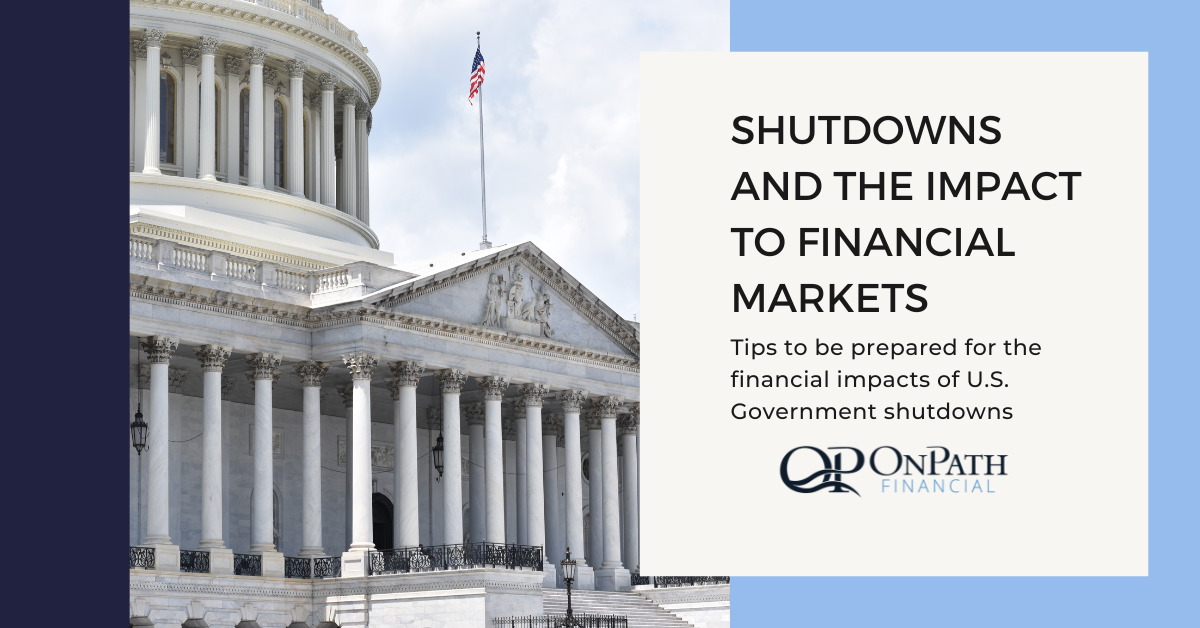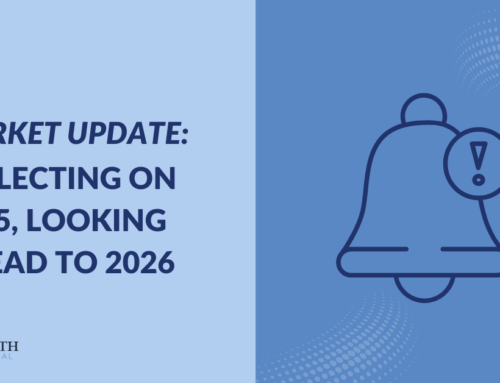Government shutdowns have become a recurrent feature of American politics, with their origins dating back to the late 20th century. These shutdowns, which occur when the U.S. government fails to pass a budget or spending bill, can have profound effects on various aspects of society. Among the most significant consequences are their impact on financial markets, particularly bond and equity markets.
The following is a very brief history of U.S. government shutdowns and the effects they have on financial markets. More importantly, here are a few insights into how investors should prepare for the uncertainty surrounding such events.
A Brief History of Government Shutdowns
Government shutdowns in the United States are a relatively recent phenomenon, with the first occurrence taking place in 1980. However, they have become increasingly common in recent years. Notable shutdowns include:
1980: The first government shutdown lasted only one day and was caused by a funding dispute over public works projects.
1995-1996: The longest government shutdown in U.S. history at the time occurred during the Clinton administration and lasted for 21 days. It was driven by disputes over the federal budget and healthcare.
2013: A 16-day shutdown occurred due to a dispute over the Affordable Care Act (Obamacare).
2018-2019: This shutdown was the longest (in U.S. history) and occurred under the Trump administration, lasting 35 days. It revolved around border security funding.
Effects on Bond Markets
Increased Volatility: Government shutdowns often lead to increased uncertainty in the financial markets. Bond markets, in particular, react to this uncertainty with heightened volatility. Investors may seek the safety of government bonds, causing yields to decline, as bond prices rise inversely to yields.
Delayed Payments on Treasuries: During a government shutdown, the U.S. Treasury Department may experience delays in making interest payments on Treasury securities. While these delays are typically temporary and interest accrues, they can still unsettle bond investors.
Credit Ratings Concerns: Prolonged government shutdowns can raise concerns about the United States’ creditworthiness. Rating agencies may review the nation’s credit rating, which, if downgraded, could have long-term implications for bond markets.
Effects on Equity Markets
Market Volatility: Equity markets, like bond markets, tend to experience increased volatility during government shutdowns. Uncertainty about the economic impact of a prolonged shutdown can lead to sharp market fluctuations.
Sector-Specific Impacts: Some sectors are more vulnerable than others during government shutdowns. Government contractors and companies heavily reliant on government spending may face declines in revenue and stock prices.
Consumer Confidence: Reduced government services and potential disruptions in income for government employees can negatively impact consumer confidence. This, in turn, can affect consumer spending and, consequently, corporate earnings, influencing equity markets.
How Investors Should Prepare
Diversification: Diversifying your investment portfolio across different asset classes, including bonds and equities, can help mitigate the impact of government shutdowns. A well-diversified portfolio may provide stability during times of market uncertainty.
Risk Assessment: Assess the specific risks associated with your investments. If you hold government bonds or stocks in sectors susceptible to government funding, consider how a shutdown might affect your portfolio.
Cash Reserves: Maintaining a portion of your portfolio in cash or cash equivalents can provide liquidity and flexibility during turbulent times. Having cash on hand can help you take advantage of investment opportunities that may arise during a government shutdown.
Stay Informed: Keep a close eye on political developments and budget negotiations. Being well-informed about the progress of funding bills can help you make timely investment decisions.
Long-Term Perspective: Remember that government shutdowns are typically temporary events, and their effects on financial markets tend to be short-lived. Maintaining a long-term perspective and avoiding impulsive reactions is often a wise strategy.
Prudent Planning Matters
With prudent planning and a long-term investment perspective, investors can navigate these uncertain periods and may even find opportunities amid the turmoil. By staying informed, diversifying their portfolios, and maintaining cash reserves, investors can work towards being better prepared for the financial impacts of government shutdowns.
Important Disclosures
The opinions voiced in this material are for general information only and are not intended to provide specific advice or recommendations for any individual. To determine which investment(s) may be appropriate for you, consult your financial professional prior to investing.
Investing involves risks including possible loss of principal. No investment strategy or risk management technique can guarantee return or eliminate risk in all market environments.
There is no guarantee that a diversified portfolio will enhance overall returns or outperform a non-diversified portfolio. Diversification does not protect against market risk.
Past performance is no guarantee of future results.
This article was prepared by FMeX.
LPL Tracking #484348






